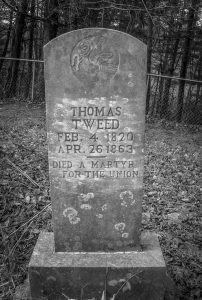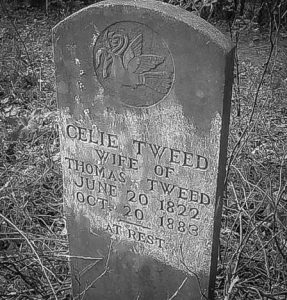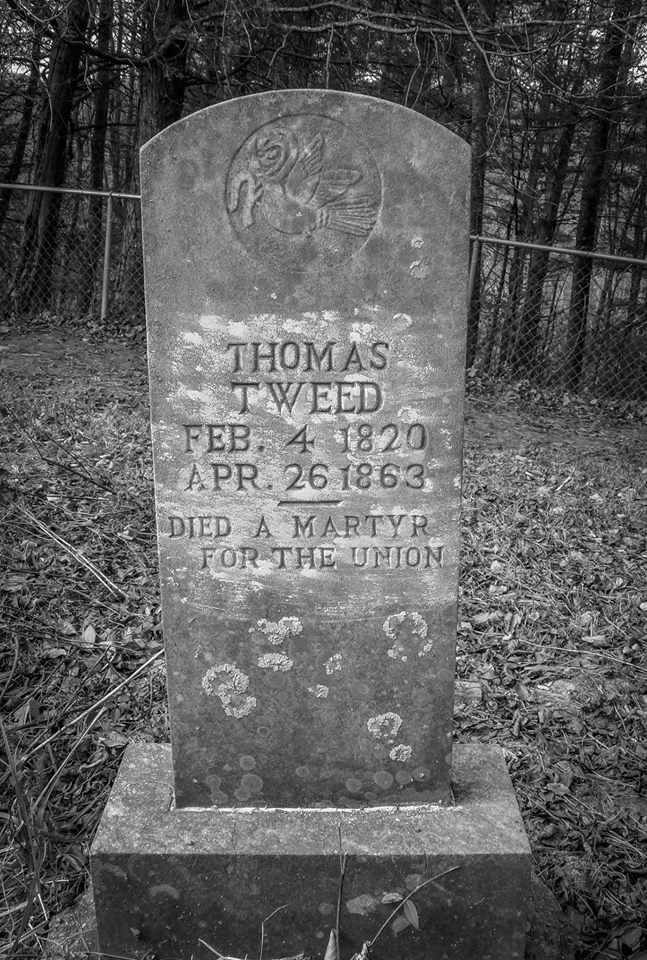Hi Folks!
Last week, I told y’all the legend of Celia Sams Tweed beauty. This week, I am going to give you the reality of her life.
Although I do not know much at all about her childhood, I can tell you that she was born on June 20, 1822 to Gabriel & Mary Polly Hampton Sams. Mary Polly Hampton came from a wealthy planter family. Her brother, Wade Hampton, was one of the largest slave holders in the southeast and was probably the largest in the Carolinas.
However, Gabriel & Mary Polly Sams raised their family in Madison County, North Carolina without slaves. Their daughter, Celia, was the second of ten children and was the oldest daughter.
 Celia married Thomas Tweed and together they had eleven children, living their lives in an isolated section of northern Madison County.
Celia married Thomas Tweed and together they had eleven children, living their lives in an isolated section of northern Madison County.
That isolation would come to an abrupt end with the advancement of America’s Civil War (1861-1865).
In May of 1861 a group from the Shelton laurel Community made their way to Marshall for Election Day and Secession was on the ballot. One of the group was Celia’s brother in law, Neely Tweed. Neely was a Justice of The Peace and former Clerk of Superior Court in Madison County.
Neely’s group was confronted by Sheriff Ransom P. Merrill. Sheriff Merrill had purchased two bushels of whiskey for Election Day, obviously to encourage voters. Merrill antagonized the Shelton Laurel group, calling them a “bunch of damned black republicans”
Neely’s son, Elisha shouted “How about three cheers for George Washington and the Union”.
Sheriff Merrill drew his pistol and shot young Elisha. He then fled to the upstairs of a nearby building. He shouted from a window for anyone to come get him that wanted to.
Neely Tweed did just that, charging up the stairs and mortally wounding Merrill with his pistol.
Neely and the group made it back to Shelton Laurel, where Neely hid out for almost a year. Elisha recovered from his wound. In April of 1862 they then made their way 90 miles north to Flat Lick, Kentucky where they mustered into the Union Army, joining the 1st Tennessee Cavalry but Neely “caught fever” and died shortly thereafter.
The stage was set for Celia and the Tweed Family.
Also in April of 1862, there was a skirmish on land owned by Thomas and Celia. Thomas other brother, John, was there as a member of the Union Army. John was in charge of blowing up bridges to help prevent Confederate advancements. He later stated that Thomas immediately took up arms against the Confederacy.
However, Thomas was captured by the Confederates. The Confederates killed all of the livestock, burned the family home and outbuildings and then marched Celia and the children across Union lines at the point of starvation.
In the meantime, Thomas was sent to “Rebel Prison” where he was routinely beaten and starved. Thomas was released almost a year later but the damage was done. He died within thirty days of his release.
Celia was angry and bitter. Although we don’t know the reasons why, she did not bury Thomas in the nearby family cemetery. She started her own cemetery, burying him on their property, his final resting place a hillside overlooking their home place.
Celia later filed for a Widow’s Pension from the United States Government. She put “her mark’ on the claim, meaning that she could neither read nor write.
In a cruel twist of fate, the United States Government deemed that Thomas had never officially mustered into the Union Army, despite his brother John & Celia’s testimony.
The claim was denied.
 Celia remained defiant. Although she could not read or write, she knew exactly what she wanted to say. She had matching tombstones made for Thomas and herself and at the bottom of Thomas stone it simply says “Died a Martyr for the Union”. The stones still stand, the epitaph on Thomas stone standing as a testament of wrongdoing in both life and death.
Celia remained defiant. Although she could not read or write, she knew exactly what she wanted to say. She had matching tombstones made for Thomas and herself and at the bottom of Thomas stone it simply says “Died a Martyr for the Union”. The stones still stand, the epitaph on Thomas stone standing as a testament of wrongdoing in both life and death.
It also points to not only Celia’s love for her husband but also to her determination and defiance, the stone reminding the world long after her death.
In the end, the legend of Celia Sams Tweed’s beauty also stands but it is a romantic notion when compared to the realities and cruelty of life for an Appalachian woman during one of the most difficult times in United States History.
Beautiful Daughter
Cleanse Your Soul
Walk the Waters
Running Black as Coal
Y’all have a great week!

